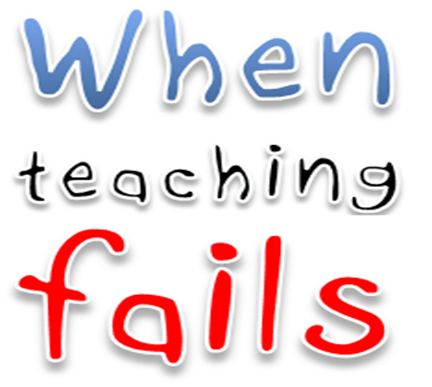Are astonishing recent successes with word-free math teaching making a mockery of the traditional textbook approach?
There have been math-teaching computer games ever since the birth of personal computing, but they were always aimed at supplementing, rather than replacing conventional classroom ‘talk and chalk’ and written exercises.
Suddenly, it’s looking like we somehow managed to miss something incredibly obvious, unnecessarily depriving millions of early learners of a life-changing skill.
It turns out that many of the most intractable shortcomings of numeracy education performance may have stemmed from a failure to recognise the implications for this problem of two well known facts:
(1) low achievement in numeracy is largely accompanied by limited literacy
Examples (I have extrapolated beyond those details of the study that I have available, because the study was age-range specific, but I have done so only in terms of additional contingents excluded from the study but present within the population as a whole):
- where the math learners do not have English as their first language and are still learning it in an English language-speaking school
- where they are dyslexic
- where motivational issues disproportionately impact learning (e.g., disadvantaged backgrounds)
- when they are learning math before their reading skills have developed (early, pre-reading learners, or late developers struggling with reading, or coming to it later in life)
- when they are just natural ‘non-linguistic thinkers’ who have a potential to excel in math (or at least to become competent) that has never been realised, as a result of their negative reaction to having to read the teaching materials (and perhaps the stigma of mathematics and/or mathematics learning, inherent to reading factors or otherwise, which the word-free games-based teaching resources may overcome)
(2) games for teaching mathematics can be strategically (and easily) designed exclusively for the purpose of making dramatic numeracy improvements achievable completely independently of literacy
Another shock discovery (i.e., other than the fact that word-free math teaching games can have such a dramatic impact on numeracy among those with literacy problems) is that the games which address these issues are not ‘only just becoming possible or inexpensive due to the latest advances in computer games design and technology’.
These games could have been cheaply written for computers which were cheap decades ago.
In fact, many such games were indeed written in the 1980s.
But nobody seems to have strategically ‘joined the dots’.
Until now.
The successful study is already a few years old, but rollout does finally seem to be gathering some pace right now.
Here’s an extract from a press release about the study described in the video:
Houston Seeks to Expand Houston Area Math Initiative to Drive Student Math Achievement
MIND Research Institute Launches Successful Research-Based Program to Nearly 50 More Elementary Schools in Houston Independent School District
In Orange County, CA. where more than 15,000 students participated in the program, the percentage of participating students testing into the Proficient or Advanced level increased by more than 12 percentage points, compared to the state average of 4.5 points.
MIND’s program, which uses non-language software games, has shown particular success among English Language Learners (ELL) and those from disadvantaged backgrounds.
Orange County and Harris County share similar demographics in that they each include districts that are among their states’ largest and have some of their states’ highest populations of ELL and Title 1-eligible students.
The Santa Ana Unified School District (SAUSD) in Orange County and Houston Independent School District (HISD) in Harris County have ELL enrolments of 60 percent and 39 percent, respectively.
Here are two more highly relevant videos on the subject:
About Matthew Peterson
Matthew Peterson, Ph.D., is Co-Founder, Senior Institute Scientist, and Chief Technical Officer of the MIND Research Institute.
He is the creator of MIND’s Math instructional software that teaches math to students using a unique non-language-based approach.
Matthew was recently featured on Discovery Channel’s “Profile Series”.
His focus is on developing math learning environments that initially convey sophisticated concepts visually, enabling students to gain a solid conceptual understanding of mathematics regardless of language proficiency.
Matthew’s cutting-edge teaching methods are currently benefiting over 300,000 students.
He is the author of “MIND’s Algebra Readiness” textbook, adopted in California in 2008, in addition to other technical and scientific publications.About the MIND Research Institute
About the MIND Research institute
The MIND Research Institute is a neuroscience and education research based, non-profit corporation.
MIND applies its distinctive visual approach to illustrating concepts and building problem-solving skills as the basis for innovative, research-proven math education programs for elementary and secondary schools.
The programs include the ST Math patent-pending instructional software for K-5 students:
ST Math: Algebra Readiness for intervention at the secondary level, and
Algebra Readiness: A Blueprint for the Foundation of Algebra a comprehensive program featuring a tightly integrated textbook and courseware.
MIND’s visual approach taps into each student’s innate ability to do spatial-temporal (ST) reasoning and problem-solving, and is effective at engaging students at all levels of language or academic proficiency.
There are currently 450 schools in California, Texas and 17 other states, and more than 100,000 students and 4,500 teachers participating in the program.


